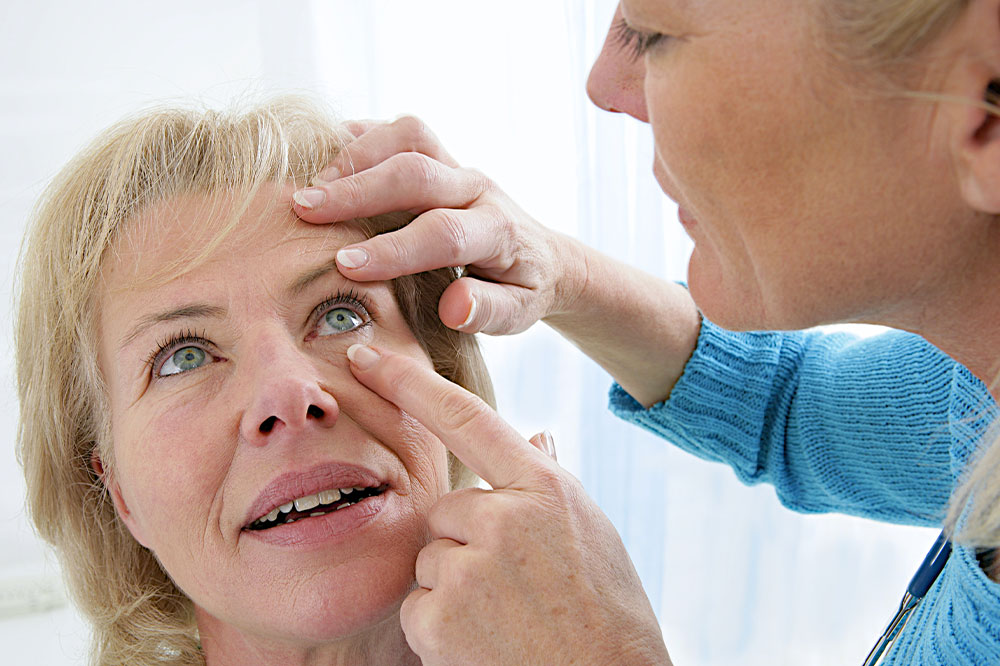7 Methods to Slow Down Macular Degeneration
Age-related macular degeneration (AMD) is a condition that affects one’s central vision, causing blurry or fuzzy vision, difficulty recognizing familiar faces, straight lines to appear wavy, blind spots, and/or loss of central vision affecting daily activities such as reading, driving, etc. It is one of the most common causes of eyesight loss in people over 50. Due to this, experts advise specific treatments to prevent or delay the progression of AMD and alternative remedies to relieve its symptoms.
Can macular degeneration be reversed?
With easy access to technology, many look for answers to their health problems online, like “How to reverse macular degeneration?” It is important to note that macular degeneration cannot be reversed as of today.

Learn about family history
Learning about one’s own family history is a critical step that could help better manage the disorder. People with a first-degree relative affected by macular degeneration are at a higher risk of the complication, so they should be vigilant for potential symptoms. A few signs that might help identify the condition’s onset include trouble recognizing faces, straight lines appearing crooked, and trouble adapting to low light.
Eat healthy foods
Eating nutritious meals is another vital step in managing macular degeneration. One should eat foods rich in vitamins, minerals, and other nutrients that improve eye health.
- Nuts and seeds are rich in antioxidants, which may help fight cellular damage.
- Leafy green vegetables like spinach, collard greens, and kale are abundant in calcium, beta-carotene, zeaxanthin, and vitamin C. These nutrients may help enhance pigment density in the macula and reduce the risk of age-related macular degeneration.
- Adding sulfur-rich herbs like garlic to a meal regime could serve as a natural lens protector because of their antioxidative persona.
- Fish like wild salmon, anchovies, and mackerel are rich in omega-3 fatty acids, which may reduce the risk of the condition.
- Green vegetables, such as broccoli and bell peppers, could benefit vision health in general.
Use eyewear
Exposure to the sun’s UV rays may contribute to macular degeneration. Therefore, protective eyewear like sunglasses should be used when traveling outdoors, especially in extremely sunny regions. It may reduce the impact of harmful rays on the eyes and slow the disorder’s progression. Like the sun’s rays, extensive exposure to television and laptop screens may be dangerous for the eyes. These screens emit a blue light that may cause retinal damage. One should speak to an expert about the appropriate eyewear to reduce exposure to this type of light.
Maintain healthy blood pressure levels
The lack of proper blood circulation due to hypertension commonly contributes to macular degeneration. Therefore, individuals should take active steps to maintain their blood pressure. The best way to do this is by indulging in regular exercise. Getting adequate rest, eating healthy foods, and reducing salt intake are other methods to keep blood pressure in check. Furthermore, meditation techniques like yoga, deep breathing, and tai chi may help lower stress, ensuring regular blood flow to the eyes and slowing the progression of macular degeneration.
Monitor vision at home
Another way to prevent macular degeneration from worsening is to monitor one’s vision at home for changes. The healthcare expert may recommend using an Amsler grid to test vision. The process involves staring at a square with horizontal and vertical lines, which looks like a piece of graph paper. It helps test for anomalies in one’s visual health. If the lines suddenly become distorted or blurry, or if spots develop in one’s vision, it could indicate developments in the person’s eye condition. One should keep the Amsler grid in a location that reminds them to use it regularly. Doing so could help manage macular degeneration and slow its progression.
Schedule regular healthcare appointments
Setting regular appointments with the eye doctor could help manage the effects of macular degeneration. The expert may help assess any potential complication that could further damage one’s vision. Healthcare providers usually conduct a series of tests to determine if an individual suffers from macular degeneration. One example is the visual acuity test, which evaluates a person’s ability to see an object at varying distances. The expert may also conduct a pupil dilation test, where the pupil is widened with eye drops to allow a close-up retina examination. Doctors may ask the patient to revisit after a couple of weeks or months based on the problem’s severity. However, one can make an appointment earlier if they experience painful eye inflammation, sensitivity to light, eye floaters or flashers, pressure build-up behind the eye, and other discomforts.
Initiate a treatment plan
After confirming the onset of macular degeneration, the expert may recommend specific treatment options to prevent or restrict its progression. For example, they may suggest chewables that provide essential vitamins and nutrients to the eyes and decrease the risk of developing more severe forms of AMD. Other treatments may include applying solutions directly into the eyes. Sometimes, an expert may recommend photodynamic therapy, which is a combination of laser treatment and intravenous methods. Remember, these are not aimed at reversing macular degeneration but at managing its progression.

